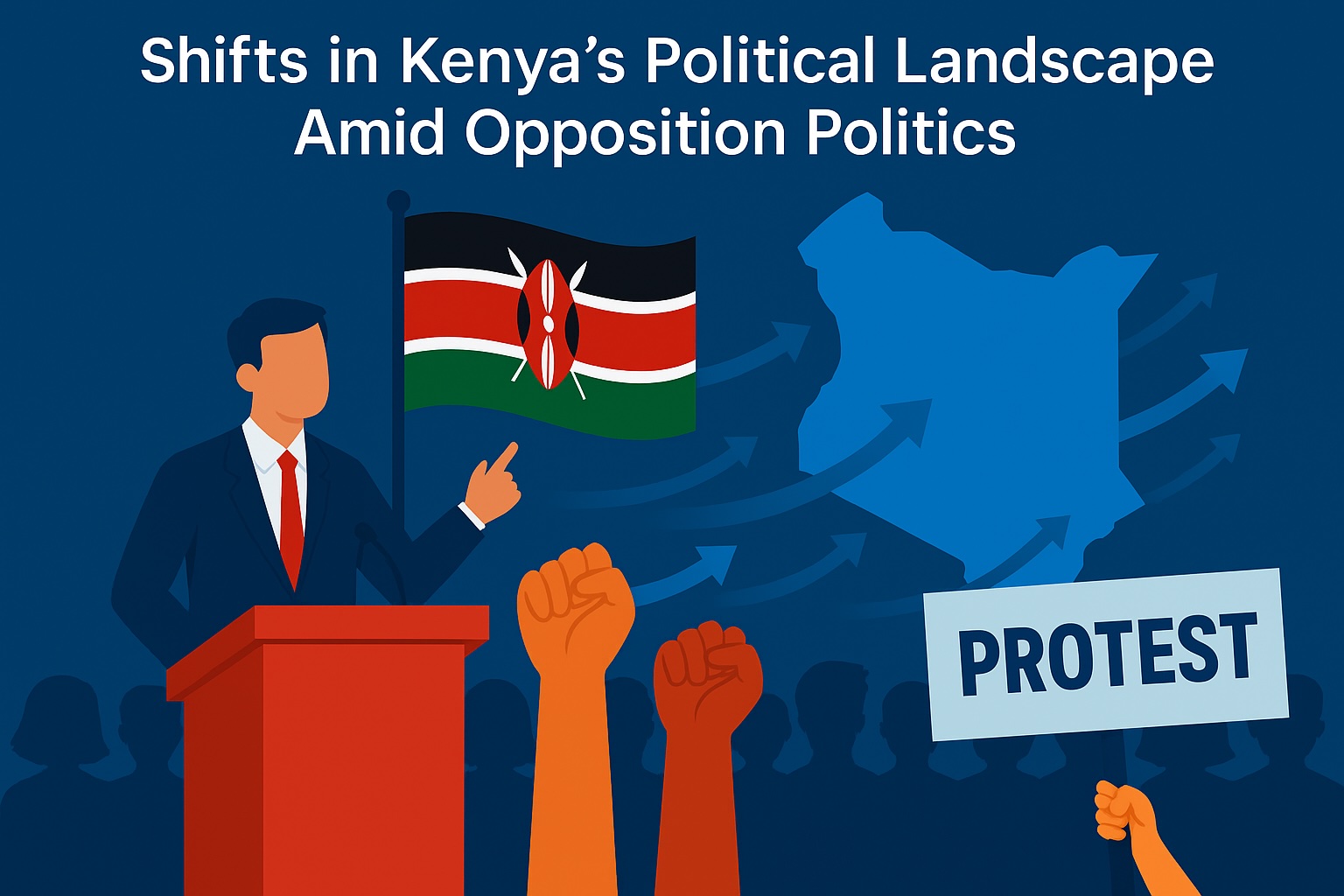
Justice, Power and the Stakes of 2027 » Capital News
As Kenya hurtles toward the next general election, the political chessboard is revealing new alignments, strategic retreats and unlikely alliances. From Kisii to Nairobi, from the SHA scandal to the future of the Opposition, every move now carries existential stakes — not just for political parties but for the country itself.
In the high-octane season of evolving opposition politics, former Cabinet Secretary Fred Matiang’i has emerged as a central figure within the Kisii political leadership caucus, actively shaping by-election planning. This pivot from bureaucratic heavyweight to on-the-ground political player signals a shift that could redefine the regional power matrix.
At the same time, the uproar over the appointment of Dr Mukisa Kituyi as spokesperson of the United Opposition — and the near-vitriolic attacks by regime-aligned bloggers — show just how rattled Kenya Kwanza has become. The Opposition’s first big test will be to manage dissent within its ranks and agree on how each constituent party consolidates its strongholds, especially in battlegrounds like Kisii, Malava and Mbeere North. Kenya Kwanza will seize on any internal contradictions; the Opposition can only send a serious statement of intent if it unites around its promise to address the plight of the majority poor through real regime change.
Yet beneath the visible campaign manoeuvres lies an even more critical development in Kenya’s body politic: the steady emasculation of voices of justice. Many prominent legal actors appear to have been roped into or co-opted by the state, diluting their authority as advocates for the majority poor.
The latest flashpoint is the subtle but calculated move to appoint Law Society of Kenya (LSK) President Faith Odhiambo as vice-chairperson of a panel on compensation for victims of protests. For some Kenyans, her acceptance represents a pragmatic decision to fight for victims from within the system. Others argue she has abdicated her role as an independent watchdog, dragging the LSK into a murky terrain just as the country approaches a consequential election.
The deeper question is whether compensating victims of police brutality amounts to justice at all. Odhiambo had earned public respect for mobilising lawyers to rescue protesters from arbitrary arrest, for showing up at police stations, and for speaking with clarity and courage about state excesses. That is why her decision has struck a nerve. Critics see her joining a committee appointed by the very establishment blamed for protest deaths as dishonouring the LSK presidency and reducing the fight for a just society to a monetary transaction.
What happens if the Makau Mutua-led committee fails to judiciously compensate victims? Who then follows up on retributive justice? Are perpetrators of extrajudicial killings still held to account? And is Odhiambo sitting there as an individual or as LSK president, thereby binding the institution?
For many critics, this panel still lacks a public-interest mandate and is perceived as a hastily cobbled team meant to prop up a sinking ship. In their view, a leading light in Kenya’s fight for justice has swallowed the bait — hook, line and sinker. Others counter that she is exercising her right and doing what she believes is best for victims.
Either way, the episode underlines how Kenya’s democratic journey is being tested on two fronts at once: in the electoral arena, where opposition leaders must consolidate and show seriousness of purpose; and in the justice space, where once-independent voices risk being neutralised at a time when the country needs them most.
As the 2027 race looms, Kenyans are left to ask not just who will govern, but who will speak fearlessly for justice when it matters most.
Dr. Hesbon Owila is a Media and Political Communications Researcher.